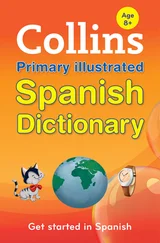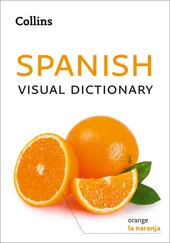| Prefierouna habitación en la planta baja. |
I’d prefera room on the ground floor. |
| Prefieroquedarme sólo una noche. |
I’d ratherstay for just one night. |
| Prefierola media pensión ala pensión completa. |
I’d ratherhave half board thanfull board. |
| Preferimosun hotel céntrico. |
We’d prefera hotel in the centre. |
If you’re with Spanish-speaking friends or colleagues when looking for somewhere to stay, you’ll need to be able to suggest things. One way of doing this is to use ¿Qué te parece si…?¿ or ¿Y si…?( How about…? ) followed by a verb in the present tense. For more on the present tense, see here.
| ¿ Qué te parece sinos quedamos un día más? |
How aboutstaying one more day? |
| ¿ Qué te parece sibuscamos alojamiento en el centro? |
How aboutlooking for accommodation in the centre of town? |
| ¿ Y sialquilamos un apartamento. |
How aboutrenting an apartment? |
| ¿ Y sipasamos la noche aquí? |
How aboutspending the night here? |
| ¿ Por qué nopreguntamos en la oficina de turismo? |
Why don’twe ask at the tourist office? |
| ¿ Por qué note quedas en un hotel más barato? |
Why don’tyou stay at a cheaper hotel? |
| ¿ Por qué nobuscamos un camping más cercano a la costa? |
Why don’twe look for a campsite nearer the coast? |
To make a suggestion about what you could do, use podríamos( we could ).
| Podríamospreguntar en la oficina de turismo. |
We couldask at the tourist office. |
| Podríamosintentar en el Hotel Europa. |
We couldtry the Hotel Europa. |
| Podríamosllamar al propietario. |
We couldtry phoning the landlord. |
Deciding on where you’re going to stay is a major part of planning a trip or holiday, so you may well want to talk about those plans in Spanish. Use voy a( I’m going to ) or vamos a( we’re going to ) and the infinitive to talk about what you’re planning to do. They’re from the verb ir( to go ). For more on ir, see here.
| Voy aalquilar una casa en las montañas. |
I’m going torent a villa in the mountains. |
| Voy aquedarme en un hotel en Barcelona. |
I’m going tostay in a hotel in Barcelona. |
| Vamos aquedarnos con unos amigos españoles en Madrid. |
We’re going tostay with some Spanish friends in Madrid. |
Another way of talking about your plans is to use tengo pensado( I’m planning to ) followed by the infinitive. tengocomes from the verb tener. For more information on tener, see here.
| Tengo pensadopasar un par de días en cada sitio. |
I’m planning tospend a couple of days in each place. |
| Tenemos pensadobuscar una casa en la costa para pasar las vacaciones. |
We’re planning tolook for a holiday home by the coast. |
| Tenemos pensadobuscarnos un camping. |
We’re planning ongoing to a campsite. |
Unfortunately the service you get in your accommodation may not always be perfect. A very simple way of complaining is to say what the problem is using hay, meaning there is or there are , and no hay( there isn’t or there aren’t ).
| Haydemasiado ruido. |
There’stoo much noise. |
| Hayuna gotera en el techo. |
There’sa leak in the ceiling. |
| Haycucarachas en el apartamento. |
There arecockroaches in the apartment. |
| No hayagua caliente. |
There isn’tany hot water. |
| No haytoallas limpias en la habitación. |
There aren’tany clean towels in the room. |
| La habitación no tienebalcón. |
The room doesn’t have a balcony. |
| El apartamento no tieneaire acondicionado. |
The apartment doesn’t haveair-conditioning. |
In the next examples notice how the verb seris used to describe things which won’t change, such as the beds being uncomfortable, and estaris used for things which can change, such as the room being dirty. For more on serand estar, see here.
| Este hotel esdemasiado ruidoso. |
This hotel’ stoo noisy. |
| Las camas sonmuy incómodas. |
The beds arevery uncomfortable. |
| El apartamento estásucio. |
The apartment’ sdirty. |
| El agua de la piscina no estálimpia. |
The water in the swimming pool isn’tvery clean. |
| Hacemucho calor aquí. |
It’svery hot in here. |
| Hacemucho frío aquí. |
It’svery cold in here. |
¿LO SABÍAS?
Remember that in Spanish to talk about the weather or the temperature inside, you use the verb hacer( to do, to make ). For more on hacer, see here.
Here are some key phrases you are likely to hear when you’re looking for somewhere to stay.
| ¿Qué tipo de alojamiento busca? |
What type of accommodation are you looking for? |
| Estamos completos. |
We’re full. |
| ¿Para cuántas noches? |
For how many nights? |
| ¿Para cuántas personas? |
For how many people? |
| ¿Me deja su nombre, por favor? |
Can I have your name, please? |
| ¿Me puede deletrear su nombre, si es tan amable? |
Can you spell your name for me, please? |
| ¿A nombre de quién está la reserva? |
Whose name is the booking in? |
| ¿Me deja ver su pasaporte, por favor? |
Can I see your passport, please? |
| ¿Cuál es el número de su habitación? |
What’s your room number? |
| Tiene que dejar una señal. |
You have to leave a deposit. |
| ¿En qué número podemos localizarlo? |
What number can we contact you on? |
| ¿Cómo quiere pagar? |
How would you like to pay? |
| Por favor, rellene este formulario. |
Please fill in this form. |
| Por favor, firme aquí. |
Please sign here. |
| Tiene que dejar la habitación antes de las doce. |
You have to be out of the room by twelve o’clock. |
Lifestyle Tips
Читать дальше












